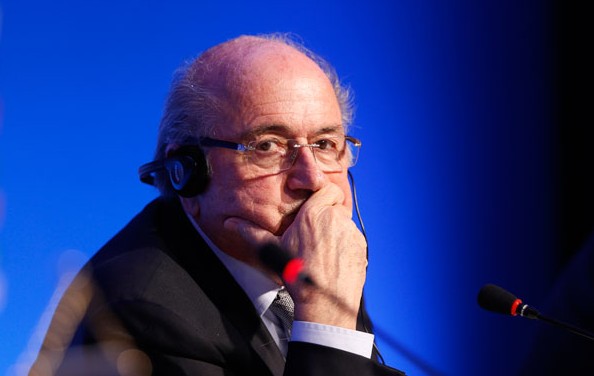Blatter signalled his intention when interviewed on the issue by Swiss radio in Sochi where, as a member of the International Olympic Committee, he has been participating in its session [congress] and will attend tonight’s Opening Ceremony.
He had suggested at FIFA Congress in Zurich in 2011 – under heavy critical pressure over successive vote-for-cash scandals – that his current term would be his last. Later, however, he intimated that he would retire only if he considered he had completed his ‘mission’ or if he felt there was a candidate up to the challenge of continuation.
Clearly he thinks the best manner of continuation is for him to stay on. Frenchman Jules Rimet, the ‘father’ of the World Cup, served eight full terms as FIFA president (33 years) while Blatter’s Brazilian predecessor, Joao Havelange, served six terms (24 years).
Blatter told RTS: “I’m in good health and I don’t see why I should now think about stopping the work. If the member associations ask me to be a candidate I would not say No.”
In effectively telling federations to queue up to nominate him, Blatter was following an encouragement formula undertaken every four years by Havelange under whom Blatter served for 23 years as development director then general secretary.
The Swiss administrator will be 78 next month but there is no age limit for directors under the FIFA statutes. Indeed Blatter had spoken out against age limits only on Thursday at the IOC Session when he said he considered them discriminatory.
Blatter’s readiness to carry on indicates one possible reason why the concept of age and/or term limits was put aside when FIFA Congress in Mauritius last year approved a number of changes to tighten up and improve FIFA’s internal governance.
Candidates for the presidency need to have a minimum of five nominations by the registration deadline at the end of January 2015. They also need to have served for two of the previous five years in football administration.
All this, obviously, will not be a problem for Blatter but the latter stricture might be a problem for Jerome Champagne, the one candidate who has already declared a bid for the presidency. Champagne, a former deputy general secretary before being ousting in 2010, launched his campaign in London last month.
Favourite to succeed Blatter has always been the French president of European federation UEFA Michel Platini. However, Platini has doubts about whether to stand, partly based on the 24/7 demands and heavy travel schedule expected of a FIFA president. He would have strong – though not total – support within Europe but limited appeal elsewhere in the world of football.
Platini has also said – and told this writer in the past – that: “I will never stand against Blatter.” The last intimation about the presidency was a statement from Platini that he would not review the issue until after the World Cup finals in Brazil in June and July.
A delicate timing issue may also persuade Platini to step back.
UEFA’s own election congress will be staged within the four months leading up to the FIFA ballot. Hence he has a delicate dilemma: If he stands for the FIFA presidency then he can hardly present himself, in advance, as a candidate to keep his own European job.
Indeed, he may feel that – as the Qatar 2022 issue has proved – his role at the head of UEFA presents more opportunity for lever-pulling behind the scenes than the heavily political role of FIFA president.
One possible outsider – for either FIFA or UEFA – is Angel Maria Villar, long-serving president of the Spanish federation and a vice-president of both world and European bodies. Blatter’s latest words suggest that Villar will have no option but to put any or all of his ambitions on hold.
One other issue remains outstanding. This is one which Mark Pieth and his reform process never touched: the very nature of the presidency (to which the term of office issue is largely irrelevant).
Havelange ran FIFA as a chairman of the board. He had his own office in Rio de Janeiro and strode into Zurich a handful of times a year when duty demanded it. Otherwise he left Blatter to run the office.
Blatter, by contrast, has maintained the working style which he developed as general secretary. Insiders used to say that Blatter was there to open the post first thing in the morning and the last one to turn out the lights at night.
This may be an exaggeration. But, certainly, Blatter has maintained the executive presidency as a 24/7 job. He has set a hard-working standard, never mind his age.








